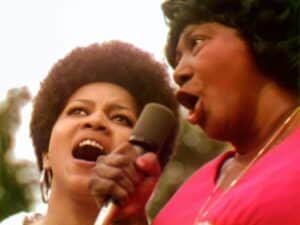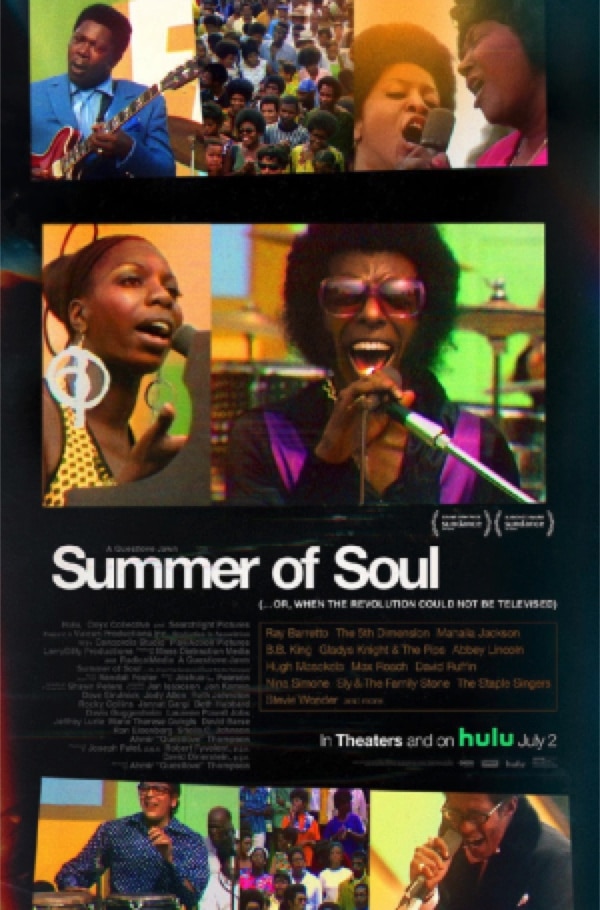You know Woodstock, right? That August, 1969 music festival that preached “peace and music” and became the defining event of a countercultural generation? But did you know about the Harlem Cultural Festival, sometimes called the “Black Woodstock”?
Just 100 miles away, over the course of six Sundays during the summer of 1969, at Mount Morris Park in Harlem, New York City, the African American community celebrated its music and culture with over 300,000 attendees over the course of the festival. Producer Hal Tulchin filmed the whole thing, but the footage sat in his basement for 50 years, practically unseen, until now.
“Summer of Soul (…OR when the revolution could not be televised),” comes to Hulu on July 2nd, the directorial debut of Ahmir “Questlove” Thompson, drummer and joint frontman of hip hop band The Roots. The documentary celebrates African American culture, music, history, and the ongoing quest for social justice and an end to racism. It’s definitely worth the watch. If you don’t have Hulu, you can still see the film. Just sign up for their free 30-day trial and cancel whenever you wish.
A favorite at this year’s Sundance Film Festival, “Summer of Soul” is part music film, part cultural commentary. One of the most satisfying aspects of the film happens when people who performed at the festival back in ’69 see the footage for the first time and share their remembrances. There’s an unmatched drum solo by a young Stevie Wonder, and a powerful moment when Queen of Gospel, Mahalia Jackson, turns the song over to Mavis Staples, who embarks on an emotional, uplifting solo.

Sly and the Family Stone, B.B. King, Gladys Knight & the Pips, The 5th Dimension and so many more were on hand to contribute to the black culture being exhibited at the festival. Gospel, jazz, soul, and salsa were all to be heard. But that’s not all. Since the festival was being held in Harlem, the organizers invited artists from East Harlem, Spanish Harlem, to participate, Mongo Santamaria and Ray Barretto, among them. They spoke the universal language: drums.
Besides being about the music, “Summer of Soul” lays out what blacks were experiencing at the end of the 1960’s, the racial discrimination and resulting unrest among the African American community and how music provided a way to be heard, to call for change, and alleviate the pain they were experiencing. Through music, the artists took their rage, their trauma, their pain and helped those who heard them feel what they felt. According to one commentator, the festival was a way of “expressing musically what we were feeling and thinking politically and culturally.”
This was most evident in the music of Nina Simone and her song, “Backlash Blues.” It starts, “So, Mr. Backlash, Backlash, who do you think I am? You raise my taxes, freeze my wages, send my son to Vietnam. You give me second class houses, and second class schools. Do you think that all colored people are just second class fools? Mr. Backlash, I’m gon’ leave you with the blues, yes I am.”

Thompson has put together a film that, hopefully, will become part of the lexicon of black history, a story to be told and never forgotten, now that the footage of the 1969 Harlem Cultural Festival has been made available to the world. May it never again be said that “we hold these truths to be self-evident, that black history is going to be erased.”
For those of us who want to be better allies to our African American brothers and sisters in the struggle to end racism once and for all, it would behoove us to learn more about black history. This film contributes wonderfully to that goal.



